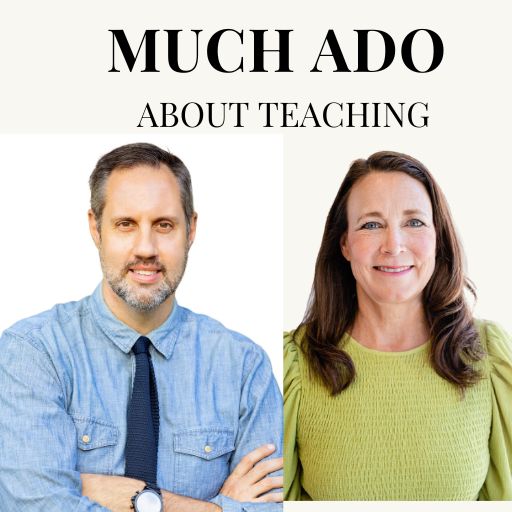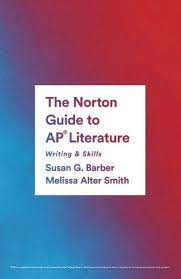I want to tell you why I am so hopeful for this school year. But first, let me share with you a bit about my first two days in the classroom.
For the past 14 years I’ve taught the same first-day lesson. Actually, it is the same first two-day lesson. I don’t do this syllabus. I don’t lecture on the rules and procedures of the class. I don’t even introduce myself or take attendance. And I sure as heck don’t try to intimidate them with the expectation that the class is Darwinian test of intellectual fitness and will eliminate those that cannot survive.
We simply get to work. It was inspired by a technique I observed from Larry Scanlon. I recite 18 lines from Tennyson’s poem “Ulysses” and I ask the students to copy down what I say. The first time I say it, students struggle to keep up by the second or third line. But they skip a few lines, jump back in and write down a few words or phrases, then fall behind again, skip another few lines, and jump back in. It takes three recitations for the students to get 90-100% of the poem.
At this time, they probably have a jumbled mess in their notebooks. But it is also at this time that I ask them to think like a poet. If this was their poem, how would they structure it?
In the second phase of the lesson, they are no longer stenographers, they are poets. They have to partner up and work with another student and decide where the lines break. They have to decide how many stanzas. They are trying to match form with function. I even say to the students, “I want to see who comes the closest to how the poem is actually composed.”
After roaming the rows and checking what they have come up with, I bring the class back together and reveal the 18 lines that they have worked with.
There lies the port; the vessel puffs her sail;
There gloom the dark, broad seas. My mariners,
Souls that have toiled, and wrought, and thought with me,
That ever with a frolic welcome took
The thunder and the sunshine, and opposed
Free hearts, free foreheads—you and I are old;
Old age hath yet his honor and his toil.
Death closes all; but something ere the end,
Some work of noble note, may yet be done,
Not unbecoming men that strove with gods.
The lights begin to twinkle from the rocks;
The long day wanes; the slow moon climbs; the deep
Moans round with many voices. Come, my friends,
‘Tis not too late to seek a newer world.
Push off, and sitting well in order smite
The sounding furrows; for my purpose holds
To sail beyond the sunset, and the baths
Of all the western stars, until I die.
Finally, knowing the words and knowing the form it takes, I tell them that we should probably see what it is saying to us. So I ask simple questions like, “who is this guy?” And as they tell me what they see, I start annotating their ideas on the board and ask more questions to probe deeper responses. We realize that he is a sea captain. We see that he is old. We know that he recognizes that death is near. But then we also find out that he and his men have done some pretty epic things. And it brings us to the end of the excerpt where we realize that the work of old age is to not wait for death to come, but to continue living. And then it hits us, the speaker possesses this self awareness of the perils of time, but he also possesses an adventurous spirit yearning to test the limitations and explore the unknown.
It is at this time, when there are usually only a few minutes left in the period, that I make the connection to their lives. You see, I teach only seniors. I tell them that in a way they are the “old” ones in the school. And in my experience there are two types of senior year. The first, and the more common, is the senior year in which a student does as little work as possible to get the grade they want, all because they have their eye on graduation and getting out of high school. Their eyes are fixated on the future and they miss the potential of the present. The second, and less common senior year, is the one in which, like the speaker of the poem, the student sees one last opportunity to do something remarkable. They muster the courage to finally try out for the school play. They break out of toxic friendships. They finally listen to that voice inside them that has urged them to follow their calling.
For homework, they have to find the rest of the poem and annotate it to the same extent that we did for the 18 lines in class.
The next day we have a Socratic Seminar and stay focused on character. The first thing I ask my students is to share their favorite line. It is an easy, no-rik way to get everyone to participate. From there, we begin to share what else we have learned about the poem’s speaker. He is Odysseus. He is bequeathing power to his son Telemachus. He can’t stand the idleness of being king. He wants to follow knowledge “like a sinking star beyond the utmost bounds of human thought.”
Finally, I ask which line gave them the most trouble.
This year someone said,
Though much is taken, much abides; and though
We are not now that strength which in old days
Moved earth and heaven, that which we are, we are,
One equal temper of heroic hearts,
And there was my teachable moment that I want to share with you because what I said to them applies to us all.
In those lines Odysseus has the self-awareness to confess that age has robbed him and his mariners of some things that made them so formidable. The epic physical strength is gone. But even though some things are gone, there is still so much left. He and his men still possess heroic hearts that have not been tempered by time.
I said to my students that over the past six months COVID has taken so much from us. We are separated by six-feet of CDC-recommended distance, we are wearing masks, and we will have only half the class present to limit the footprint in the building. I didn’t let them work with partners like I had the previous 13 years. We didn’t have a Socratic Seminar on the second day like I always have.
We can lament what’s gone.
But there is something that still remains in the room.
Our spirits.
We can still follow knowledge like a sinking star. We can still “sail beyond the sunset.” We can still strive, seek, find, and not yield.
Masks won’t stop us from creating an epic classroom culture. Distance won’t either. It avails not. If our hearts are in the right place, we can overcome the obstacles.
This is what great poetry, and really any great art, does. It speaks to us. It moves us. It awakens latent feelings that are buried inside. It calls us to serve a greater purpose. It soothes us during our losses.
Hearing from teachers around the country of the past few weeks, I know that the challenges of this year are formidable. I know how hard so many of you are working to serve your students as best you can. I know this is not easy. But there is courage when you show up and do it again and again.
Indeed, “much has been taken,” but “much abides.”
I want you to know that as we start the 2020-21 school year, see you. I see that work that you are doing. You and I are in the boat together. If we fight the temptation to bemoan our limitations, and if we keep our eyes on the horizon and imagine what’s on the other side, you, me, your students, and mine will all go somewhere extraordinary this year.












